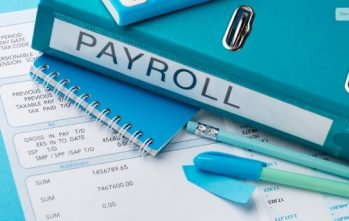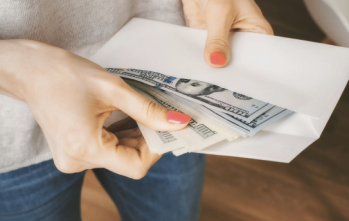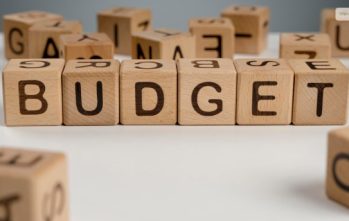Table Of Contents
- How Does ADHD Affect Impulsive Buying Behavior?
- How Is ADHD Impulsive Spending Related To ADHD?
- How To Control ADHD Impulsive Spending?
- Be Aware Of Your Impulsive Spending Habits
- Make A Budget
- Making Shopping Lists
- Quit The Credit ? Stick To Cash
- Do Not Purchase Anything In The Checkout Lane
- Keep Tags On Your Purchases
- Give Yourself A Small Allowance Here And There
- Take Someone Along With You For Shopping
- Delete Your Payment And Card Information From The Online Stores
- Use The Application To Keep Track Of Your Spending
- Wait For 24 Hours Before Purchasing Something You Wish To
- Discuss All Your Major Purchases With Your Spouse, Family Member, Or Friend
- Allow Yourself Some Treats, But They Should Fit Your Budget
- Write Down Some Visual Reminders Of Your Financial Goals
- The Bottom Line
- How Does ADHD Affect Impulsive Buying Behavior?
- How Is ADHD Impulsive Spending Related To ADHD?
- How To Control ADHD Impulsive Spending?
- Be Aware Of Your Impulsive Spending Habits
- Make A Budget
- Making Shopping Lists
- Quit The Credit ? Stick To Cash
- Do Not Purchase Anything In The Checkout Lane
- Keep Tags On Your Purchases
- Give Yourself A Small Allowance Here And There
- Take Someone Along With You For Shopping
- Delete Your Payment And Card Information From The Online Stores
- Use The Application To Keep Track Of Your Spending
- Wait For 24 Hours Before Purchasing Something You Wish To
- Discuss All Your Major Purchases With Your Spouse, Family Member, Or Friend
- Allow Yourself Some Treats, But They Should Fit Your Budget
- Write Down Some Visual Reminders Of Your Financial Goals
- The Bottom Line
Impulse Buying: 15 Ways To Control ADHD Impulse Spending
Having control over how I spend my money is something I have mastered after a lot of effort. It is not something you gain perfection on in no time. In fact, this may come as a surprise to many people, but impulsive buying is a tendency that is very common among people suffering from ADHD. Yes, ADHD impulsive spending is a genuine concern among impulse buyers.
As an impulsive buyer myself and someone who suffers from borderline ADHD, I can confirm that ADHD impulse buying is something that has severely thrown me into a puddle of money issues and a lack of savings. There were days when I had to borrow money from my father just because I used to spend it at the beginning of the month.
If you are someone going through the same issue, let me tell you that you are here at the right place. In this article, we shall have a one-to-one conversation between one impulsive buyer and the other and see if my ways of controlling it will work for you, too.
How Does ADHD Affect Impulsive Buying Behavior?

Whenever we talk about ADHD [attention deficit hyperactivity disorder], we associate it with all its parent symptoms like disrupting class, fidgeting, and overall being disorganized. While these are absolutely true when it comes to very certain aspects of AHDH, there are a few other symptoms that we tend to overlook when it comes to this mental illness. These symptoms include impulsive spending and time blindness. The symptoms of ADHD can wildly affect the lives of people suffering from it.
It is fine if you are not aware of the lesser-known symptoms of ADHD to date. I wasn?t either for a very long time. It was not until I started working that I realized impulsive spending is not something I do out of habit; it is more a coping mechanism for the illness that my brain was suffering from.
Time blindness is the incapacity to accurately perceive time. It may impact some of the major decisions of your life.
How Is ADHD Impulsive Spending Related To ADHD?

Well, to simplify things, ADHD and impulsive spending are not directly related. We call it ADHD impulsive spending to simplify it for the general audience. But in real, impulsivity is a common symptom related to ADHD along with other types of neurodiversity.
Impulse control develops difficulty in how you get to control yourself and the process of decision-making. In fact, someone suffering from it cannot even comprehend the consequences of their immediate actions.
Therefore, when you have ADHD, it becomes difficult for you to have control over your buying behavior. Being triggered by impulsivity, it becomes even more severe, and hence, you end up spending a substantial amount of money on things you do not even need.
It is not like you do not want to have control over it. When I was suffering from impulsive spending, every day was a struggle for me. No matter how much I wanted to control my urge to spend, I would terribly fail at it. People would think I had a bad habit of spending my money, but no one really understood the reasons behind it.
So, unless you understand that there is a practical reason behind your spending habits, no one can really help you balance your finances from month to month.
How To Control ADHD Impulsive Spending?

ADHD impulsive spending is way more common than you may think. There is apparently nothing special that you can do to get it under control.
If you have ADHD impulsive spending habits, it may become extremely difficult for you to control your urge to spend on things that catch your eye.
Here are some times that worked pretty fine for me. Maybe these are going to work just fine for you, too:
Be Aware Of Your Impulsive Spending Habits
The very first step to resist impulsive spending is to become aware of your spending habits. You need to keep track of how you spend and what you spend. This will paint the picture of how much money you generally spend on things you do not even need.
Make A Budget
Once you identify all those areas where you spend too much money, make a budget for yourself, and please stick to it. If you do not stick to the budget you make for yourself, there is no point in creating it in the first place.
Ensure that the budget consists of both your variable expenses and fixed expenses. When you set a limit on each of these expenses, it will make sure that you are overspending in any of the areas.
Following a budget may be difficult. No one likes being under a limit, especially for people who like to spend for pleasure. But it is necessary that you stick to it as much as you can. The more you respect the budget, the easier it is going to be for you to maintain your finances.
Making Shopping Lists
This is something I am suggesting from personal experience. You have no idea of the wonders that a shopping list can do for you. When you have it all planned and list down everything you need to purchase, you will not be easily distracted by other things in the store.
Try not to mindlessly walk inside a store unaware of your needs. This triggers impulsive spending.
Quit The Credit ? Stick To Cash
When you go out shopping, try to use cash more than your regular digital payment methods or a credit card. Carrying small bills may also help you avoid impulsive spending, as larger bills generally make people buy unnecessarily large amounts or quantities of things.
When you avoid using your card or carry smaller bills, you will be limited and aware that you have only a set amount to spend on things.
Do Not Purchase Anything In The Checkout Lane
One great way to avoid spending unnecessary money is to not even walk down the lanes when there is no need for it. This tip is particularly important for those grocery stores that stock their checkout lanes full of treats and candies. They are just there to mainly tempt the shoppers to make those extra purchases.
Under all costs, try to avoid these sections if you wish to stick to the budget as much as you can.
Keep Tags On Your Purchases
If you are finding yourself tempted to buy things at the store, try to leave the tags on the items when you are leaving the store. When you do this, you will be able to realize when you get back home if you need the items at all.
Every store has a return policy, and you can easily return the products and get a return or the same instantly.
Give Yourself A Small Allowance Here And There
Rather than spending all the money in one go, give yourself some allowance to spend. This can be just like a cheat meal. If you try to keep yourself controlled all the time, it may backfire on the whole plan to stop ADHD impulsive spending. This may be a monthly or weekly allowance. This will make you accountable and more conscious of how much you are getting to spend on things you do not even need.
Take Someone Along With You For Shopping
This is yet another tried and tested formula to stop ADHD impulsive spending. For a long time, I used to take my mother with me for shopping. Trust me when I say this: mothers can make you do the impossible. I never thought I?d be able to have control of the money I get to spend when I go shopping, but bringing that woman with me has changed everything.
If you cannot get your mother to do this, at least take someone with you. Keep in mind that the person needs to be a bit more conscious about spending money than you. This way, they will be able to keep you in control and make sure you do not get lost in between the aisles.
Delete Your Payment And Card Information From The Online Stores
If you are aware that you visibly struggle with temptation when you shop online, the only way to control it is by removing all the payment information from the websites that generally excite you. This will reduce those unnecessary online shopping sessions. This is because when you do not have the card information, it becomes psychologically difficult for you to make an impulsive purchase by putting in all the card information and payment details.
Use The Application To Keep Track Of Your Spending
Tracking your finances is pretty important, no matter what budget you are following or what the financial situation is. There are a number of online applications available that help users track their spending habits and budgets.
These applications provide you with an overview of where you are spending your money every month. This can offer an insight into how much of it you are spending on impulse buys.
Wait For 24 Hours Before Purchasing Something You Wish To
This is a common psychology for purchasing something. In the heat of the moment, we end up buying things we do not even need. So, if you are willing to buy something, give it some time. In the span of 24 hours, your brain will come down from the high, and you will actually be able to process if you need that item or not.
Give yourself this time to weigh the pros and cons of the items. In most cases, you will realize that you did not even need the product.
Calculate The Price Of The Product Based On The Hours You Would Have To Work To Pay For It
This is a hard job, and it is pretty straight to the face, but this is the only effective way to make yourself realize how much money you are wasting on things you do not need. While a lot of people may consider it silly, this works.
For instance, if you walk by a Gucci store and something catches your eye, check the price first. See how much you would have to work to earn that money you would spend on it. Imagine spending 48 hours working in a second on something that you probably do not even need. Hurts right? This is the exact type of hurt and regret that will make you have control over your spending habits.
Discuss All Your Major Purchases With Your Spouse, Family Member, Or Friend
If you are thinking about buying something big, it is best to first discuss it with someone else. When you plan a purchase before actually purchasing it, it helps you decide if it is actually worth it in the long run. This person can be your spouse, someone from the family, or a friend. But this person should come up with an objective opinion that would support all your financial goals.
Allow Yourself Some Treats, But They Should Fit Your Budget
This may sound a bit silly, but treating yourself with some treats is not necessarily a bad option for your budget. Just as I mentioned before, you need to allow yourself some cheat meals no matter how strict of a diet you are following. But make sure that the treat is something that fits your budget.
Do not just go around and spend a tonne of money at a fancy store just because you are getting an allowance. Even treats need to maintain a limit, crossing which may turn out bad for your financial health.
Write Down Some Visual Reminders Of Your Financial Goals
When you are trying to control your ADHD impulsive spending, keeping visual reminders of the saving goals can be extremely helpful. Note down what you are planning to save up for. It can be a holiday or maybe your general spending. Then put them somewhere in the house where you can easily see them.
These reminders will give you the constant motivation to reach the financial goals that you are so desperately trying to reach.
The Bottom Line
ADHD impulsive spending is no joke. People have literally suffered financially due to their habits of spending impulsively.
Solving this would require you to put in more effort by yourself first. No one can help you better than yourself to control how and where you are spending. This is going to be very difficult in the beginning. But with time, things are going to get easier. And after a lot of struggles, it is going to get so easy that you will forget that there was at all a problem.











Leave A Comment